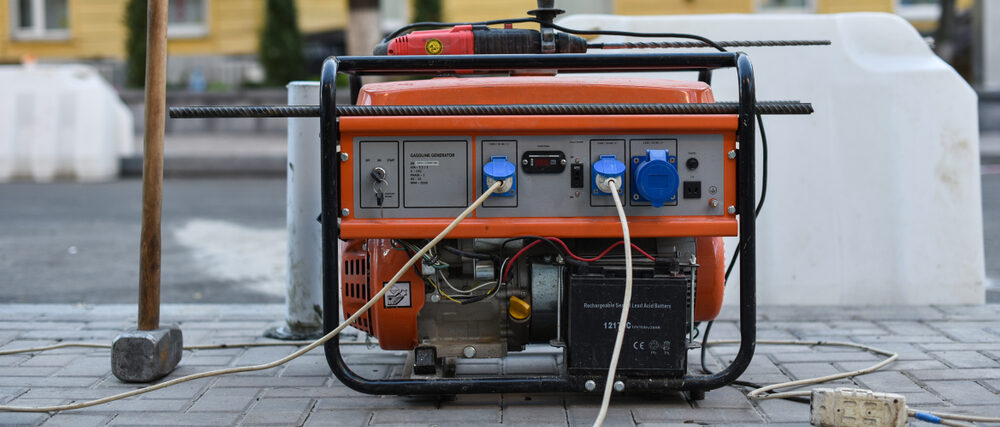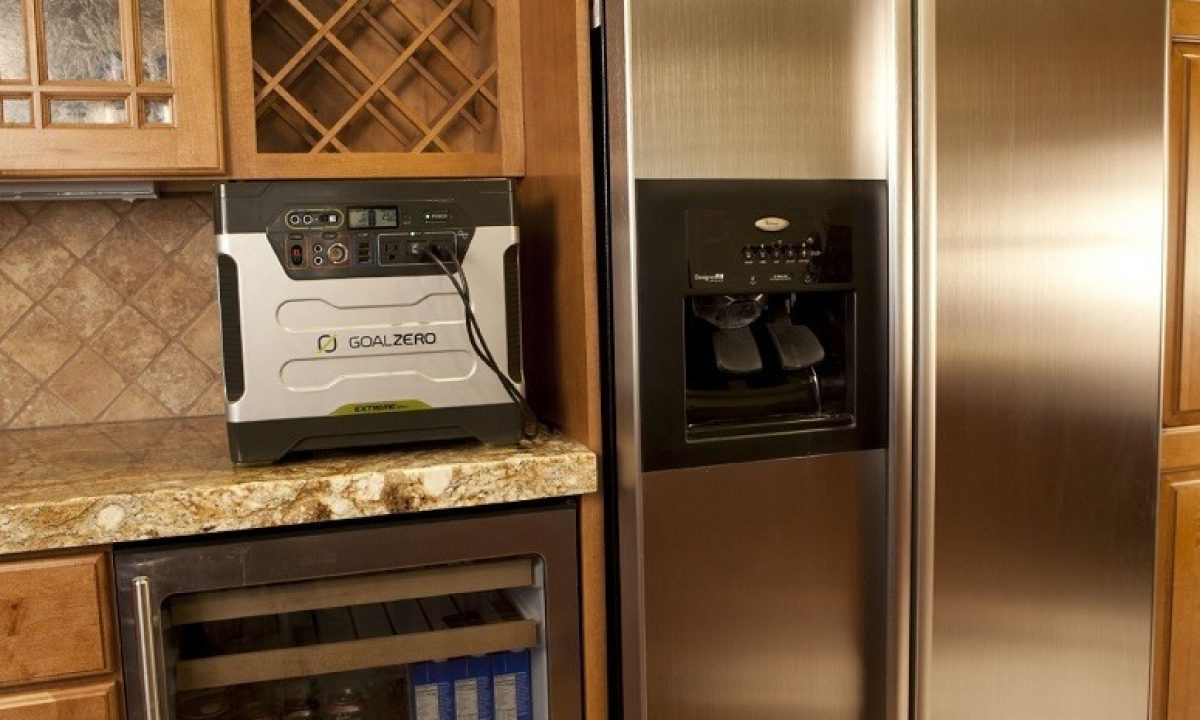Refrigerators are functional with good capacities for maintaining cold temperatures that keep your food fresh and safe. Have you ever wondered how to keep your refrigerator running on an automatic, reliable source of power without interruption? Then you’ll find out how that works in a bit.
Generators Provide Automatic Power
The regular power supply can be interrupted at any time without warning. However, standby generators provide automatic power within few minutes of a power failure. Powered by gasoline or fuel and counting on their wattage output, generators have versatile services, from running a portable torch to several large appliances.
Refrigerators and freezers have different capacities. What’s most important when selecting the best option generator for either your refrigerator or freezer is evaluating the starting and running wattage for both appliances.
One determining factor in the size of generator you will need is the total wattage of the refrigerator you will be running simultaneously. In most cases, the starting wattage is higher than the running wattage. Therefore, you need to consider a generator that can accommodate both voltages.
How to Determine the Adequate Size of a Generator?
Every extra wattage matters in calculating the size of generator fitting for your refrigerator use. Always consider the following factor before making the purchase:
Factor 1 – Consider the Power
As mentioned earlier, to determine your generator capacity, you need to double-check the wattage of your refrigerator or freezer. In making an accurate size evaluation, power is a factor you want to consider as it plays a significant role in your generator purchase.
To decide on this one, you need to find the starting wattage for each piece of equipment then add them together to find the total wattage required. Your generator can run your refrigerator or freezer once the starting process is successful. With your refrigerator running smoothly, you need to take other precautions.
What does this mean? It means having a generator that can accommodate a power surge or an extra load. Note that a generator that falls short of power requirements can damage your appliances.
Factor 2 – Modular Capability
When your power needs surpass your generator output, modular capability saves the stress of buying a whole new bigger engine. It simply connects one generator with others and delivers a single power output in the process.
Modular capability is a feature you should consider in your next generator purchase because not all generators have it inbuilt. To economically power your refrigerator during an emergency, always check for this quality.
Factor 3 – Physical Size and Transportation
Next, you should have a thorough evaluation of your generator’s physical size, weight, and dimension. This evaluation helps to narrow down your selection options. You can choose between purchasing a large generator with enough power output or several small ones with modular compatibility but with the needed power output.
It’s best to stay on the conservative side and keep in mind that generators are durable engines, and getting the best output is determined by accurate sizing. Do not compromise the output of your generator, even if you have mobility restrictions and limited space to install it. You can consider getting a compact generator with the best power
Things to Know Before Buying a Generator for a Fridge and Freezer
Determine the Refrigerator Watts
You need an idea of what type of generator to use depending on the refrigerator or freezer you would be powering. Usually, conventional refrigerators have a starting wattage of 800-1200 watt and a running wattage of around 150-watt. Likewise, an average freezer uses 335-350watts. Although, your appliance may use more watts.
Are you wondering how to determine the average wattage for your refrigerator?
It’s simple. All you need is to multiply volts x amps for your wattage calculation. Locate those numbers on the manufacturer’s manual or tag.
Determine the Generator Type
There are several generator type options barring gasoline, propane, natural gas, diesel, or battery. Determining the best model for your refrigerator is vital.
- Gasoline Generator
This generator type is usually portable, quieter and versatile.
- Diesel Generator
Satisfactory for prolonged or even continuous usage outdoors.
- Turbine Generator
This fast charge generator offers the benefits of a constant supply of electricity with the topmost efficiency.
- Battery Generator
This generator type has the benefit of being the only type installed indoors.
When choosing your generator type, you should decide whether you’re looking for a temporary or permanent installation? Also, where do you plan to have it installed? Is it indoors or outdoors?
Questions You Need to Ask Before Buying a Generator
1. Are you purchasing a generator for an old or new refrigerator?
The older your appliance gets, the more power it consumes because the power consumption increases with usage. Plus, modern models tend to be less power-consuming and conservative.
2. What is the total capacity and size of your fridge?
Usually, there’s a direct relationship between refrigerator size and power, which means a smaller fridge would require less capacity to run efficiently. Although, this assumption is not constant.
3. Does your refrigerator or freezer come with special features?
The latest refrigerators are state-of-the-art technologies with cutting-edge innovations like door configurations, energy efficiency, Wi-Fi connectivity, and an ice dispenser. Extra perks definitely come with a price. So if your refrigerator has some capabilities, expect more power consumption compared to a standalone refrigerator.
As you can see, these factors come to play while choosing the best generator to run a fridge.
How Important Is It to Choose the Right Generator Size?
 You may already know that a wrong pick can damage your refrigerator and other electronics connected to it. We’ve come to the point where we evaluate the consequence of picking an undersized generator for your refrigerator.
You may already know that a wrong pick can damage your refrigerator and other electronics connected to it. We’ve come to the point where we evaluate the consequence of picking an undersized generator for your refrigerator.
Insufficient Power
Having an insufficient power output would defeat the purpose of purchasing a generator in the first place. You want a generator that can efficiently run your appliances and deliver with an effortless running capacity.
Risk of Damage to Your Appliances
When a generator is overloaded, it causes overheating, eventually leading to a surge or burnout. This leaves a damaging effect on connected electronics and appliances. While it might not automatically destroy your appliances, it may reduce their effectiveness.
Damage to the Generator Itself
In some cases, compacting the wrong generator size with your refrigerator or freezer can have a boomeranging effect on your generator itself. A burnout can break your generator engine and lead to an explosion. You always have to be careful about how you connect your electronics.
Conclusion
With innovation happening in quick succession, life just got easier. There are various options to power your refrigerator without depending on the primary source of power. Standard generators are the contemporary power source that keeps your appliances running smoothly.
Keep in mind that a wrong size generator can damage your electronics and put you at risk of an explosion. Therefore, prioritise evaluating your wattage, size, and other capacities before going for a purchase.
Explore and find out the most efficient generator to power your refrigerator. All you have to do once you’ve installed your new generator is to enjoy reliable service.

